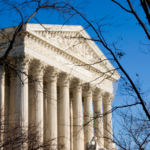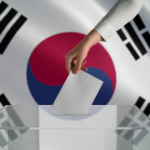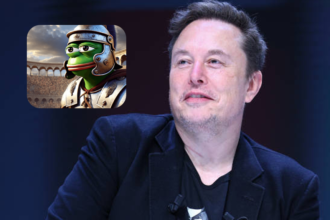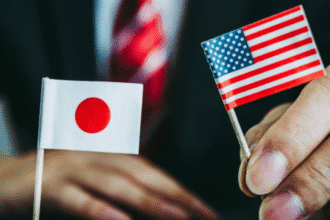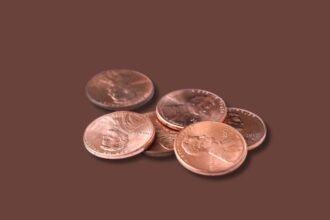Elon Musk, the world’s richest man and CEO of Tesla, recently called President Donald Trump’s trade adviser, Peter Navarro, a “moron” after Navarro made critical comments about Musk’s electric vehicle company. Musk, who has also been involved in the Trump administration, accused Navarro of being “dumber than a sack of bricks” in a series of posts on his social media platform X. This public clash was fueled by differing views on Tesla tariffs and manufacturing practices, with Navarro questioning Tesla’s contributions to the U.S. manufacturing sector.
- How Did the White House React to the Feud Over Tesla Tariffs?
- What Did Musk Say About Tesla's Role in U.S. Manufacturing Amid Tariffs?
- How Do Analysts View the Impact of Tariffs on Tesla and U.S. Automakers?
- Why Do Some U.S. Business Leaders Oppose Trump's Tariff Policy on Tesla?
- What Are the Risks of Trump's Tariffs for the U.S. Economy and Tesla?
- How Does Peter Navarro’s Loyalty to Trump Affect His Role in Trade Policy on Tesla?
- Conclusion
Navarro’s comments stemmed from an interview where he criticized Musk’s business operations. “He’s not a car manufacturer. He’s a car assembler, in many cases,” Navarro remarked. These statements were part of a broader conversation regarding President Trump’s trade policies, particularly his desire to see more U.S.-made parts used in manufacturing. The issue of Tesla tariffs played a central role in the exchange, with Navarro and Musk offering opposing views on the company’s impact on the U.S. economy and trade policies.
Musk quickly responded, dismissing Navarro’s assertions as “demonstrably false.” The back-and-forth was one of the most significant public disagreements between Musk, a vocal supporter of Trump, and members of his trade team. Musk’s defense of Tesla’s role in U.S. manufacturing, especially in light of the ongoing discussions about Tesla tariffs, highlighted the growing tensions over Trump’s trade policies.
How Did the White House React to the Feud Over Tesla Tariffs?
After the public feud between Musk and Navarro escalated, White House spokeswoman Karoline Leavitt was asked to weigh in on the conflict. She noted that Musk and Navarro
held different views on trade and tariffs, suggesting that the disagreement was a natural result of their opposing perspectives. Leavitt further commented, “Boys will be boys, and we will let their public sparring continue.” This remark signaled the White House’s casual stance on the dispute, choosing not to intervene in the public back-and-forth between Musk and Navarro.
Trump has long defended his sweeping tariffs as a means to revive U.S. manufacturing, and Navarro, known for being a staunch advocate of the “America First” agenda, has frequently voiced support for these policies. During a recent appearance on CNBC, Navarro argued that the U.S. auto industry had become an “assembly line for German engines and transmissions” and needed to shift towards more domestic manufacturing. According to Navarro, the focus on international suppliers has weakened the U.S. manufacturing base, and the future should prioritize American-made parts—a notion directly connected to the discussion surrounding Tesla tariffs.
What Did Musk Say About Tesla's Role in U.S. Manufacturing Amid Tariffs?
In response to Navarro’s criticisms, Musk posted a link to a 2023 article by car valuation firm Kelley Blue Book, which cited research from Cars.com. The article noted that Tesla vehicles contain a higher percentage of U.S.-made parts than any other automaker. Musk took to his social media platform, X, to emphasize this point, writing, “By any definition whatsoever, Tesla is the most vertically integrated auto manufacturer in America with the highest percentage of U.S. content.”
Musk’s statements directly countered Navarro’s assertion that Tesla simply assembles cars rather than manufactures them. According to Musk, Tesla’s role in U.S. manufacturing is not only substantial but also pivotal to the future of American-made vehicles. Musk’s response was a direct rebuttal to the idea that Tesla tariffs would be needed to bring jobs back to the U.S., as he believed his company was already a key player in advancing U.S. manufacturing. Tesla tariffs would not be necessary to bolster the company’s domestic production, according to Musk’s argument.
How Do Analysts View the Impact of Tariffs on Tesla and U.S. Automakers?
While Musk made a forceful defense of Tesla’s manufacturing practices, analysts have noted that Tesla’s exposure to tariffs is somewhat different compared to traditional U.S. automakers like GM, Ford, and Stellantis. Dan Ives, a technology industry analyst, explained that while Tesla does source a significant portion of its parts from outside the U.S., particularly from China, the company is still less exposed to tariffs than its competitors. Ives argued that Tesla’s global footprint and its ability to adapt to changing trade policies have given it an advantage over other manufacturers.
However, Ives also acknowledged that the broader impact of tariffs could still disrupt Tesla’s supply chain. Even though Tesla’s U.S.-based operations are more insulated from tariffs than other automakers, the company is still part of a global supply chain that would feel the effects of increased trade barriers. Tesla tariffs could have significant consequences for the company’s international operations, especially as it competes with rising competitors like China’s BYD, which have lower production costs and fewer tariff-related barriers.
While Tesla’s resilience in the face of tariffs is undeniable, the company’s future growth could be impacted by changes in the global supply chain. Analysts have emphasized that Tesla tariffs could alter the dynamics of the electric vehicle market, especially as the company expands its operations in Europe and Asia.
Why Do Some U.S. Business Leaders Oppose Trump's Tariff Policy on Tesla?
Musk’s frustrations with Trump’s tariff policies are shared by many other business leaders, particularly those in industries that rely on international trade. In recent months, there has been growing concern over the economic impact of tariffs, with many CEOs expressing their opposition to the current trade policy. A survey conducted by the Yale School of Management revealed that 79% of business leaders felt embarrassed in front of international partners due to the tariff policies, and 89% believed that tariffs were pushing the U.S. economy toward a recession.
Musk’s vocal criticisms of the tariff policies align with these sentiments. The Tesla CEO has long supported free-market principles and has frequently cited the economist Milton Friedman, a staunch opponent of tariffs, in his posts on social media. Musk’s endorsement of Friedman’s views emphasizes his belief that free-market competition, rather than government intervention through tariffs, is the key to economic prosperity.
In a post on March 27, Musk also pointed out that even Tesla would not be immune from the disruptions caused by tariffs. This statement further highlighted the concerns of business leaders who fear that the current tariff policies could harm both U.S. companies and global trade.
What Are the Risks of Trump's Tariffs for the U.S. Economy and Tesla?
As the U.S. continues to impose tariffs on various countries, the broader economic consequences have raised alarms among economists and business leaders alike. Bill Ackman, a billionaire fund manager and Trump backer, recently called for a pause on the tariffs, warning that the current policies could lead to “major global economic disruption.” Ackman argued that the tariffs would harm global trade and create unnecessary economic strain, ultimately stifling growth and increasing costs for consumers and businesses alike.
The risk of further economic harm is not just theoretical. As tariffs increase the cost of imported goods, companies like Tesla could face higher production costs, which would ultimately be passed on to consumers. This is particularly concerning as the electric vehicle market becomes more competitive, with foreign manufacturers like BYD gaining traction in the U.S. market.
How Does Peter Navarro’s Loyalty to Trump Affect His Role in Trade Policy on Tesla?
Peter Navarro’s loyalty to President Trump has shaped his approach to trade policy, particularly in the case of Tesla tariffs. As one of the main architects of Trump’s “America First” trade agenda, Navarro has been a staunch advocate of protectionist policies aimed at bringing jobs back to the U.S. His unwavering support for Trump’s tariff strategy has led to frequent clashes with business leaders like Musk, who argue that these policies harm economic growth and disrupt the global supply chain.
Navarro’s role in shaping trade policy has had a lasting impact on the U.S. economy. However, his public feud with Musk underscores the growing divide between Trump’s trade team and influential business figures. Musk’s outspoken opposition to Tesla tariffs and other trade policies continues to challenge the administration’s approach to global commerce.
Conclusion
The ongoing debate over Tesla tariffs highlights the larger issues surrounding U.S. trade policy. As Tesla’s CEO, Elon Musk has positioned himself as a vocal critic of Trump’s tariff strategy, arguing that his company already plays a vital role in U.S. manufacturing. Meanwhile, Peter Navarro remains a staunch defender of the tariffs, viewing them as essential for reviving American manufacturing. As this clash between two prominent figures continues, it underscores the broader challenges the U.S. faces in balancing domestic economic policies with the realities of global trade.



